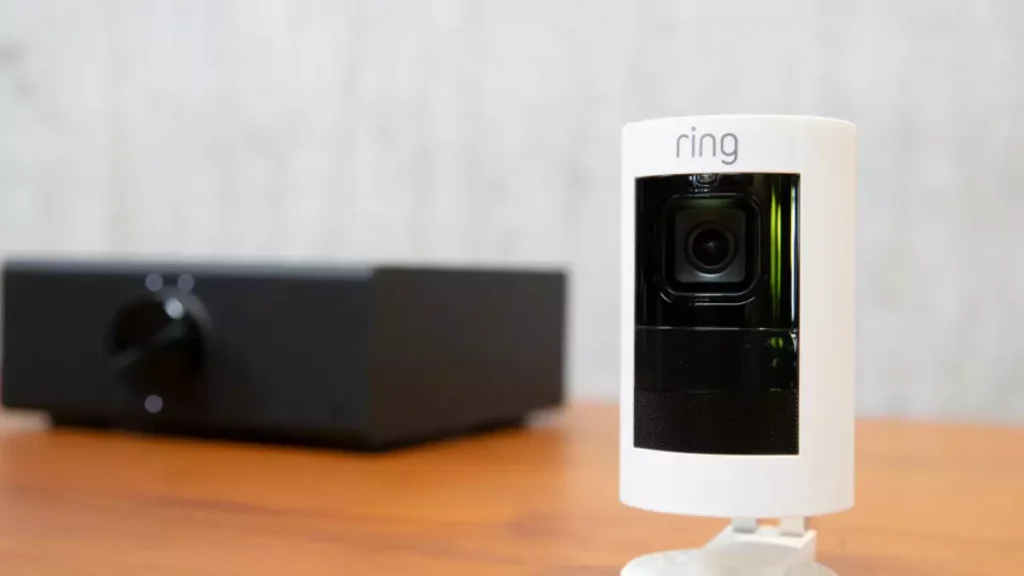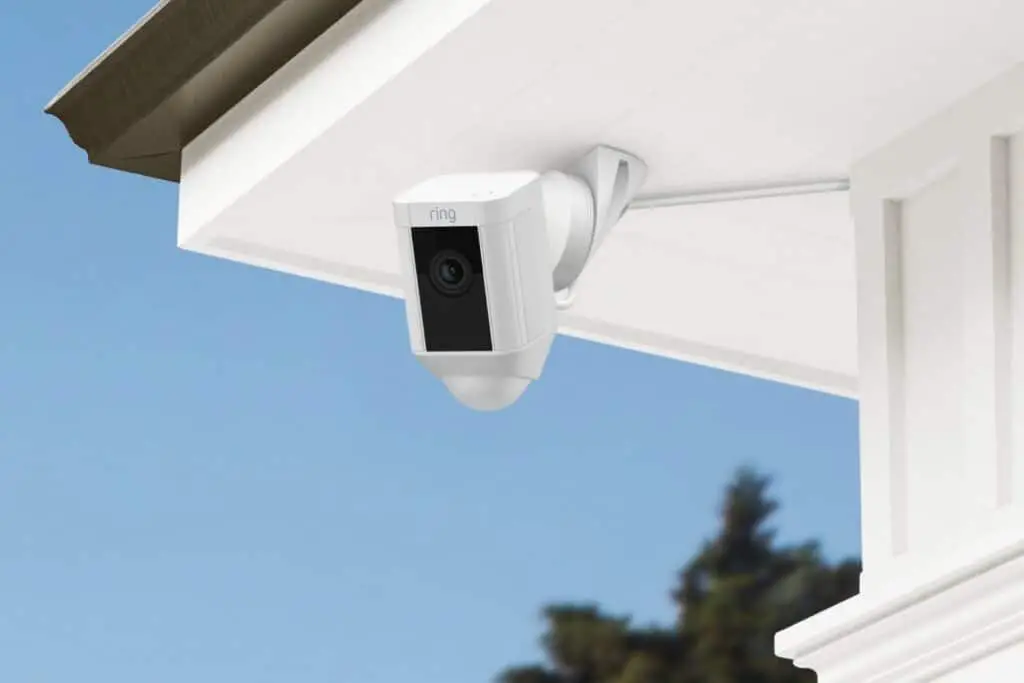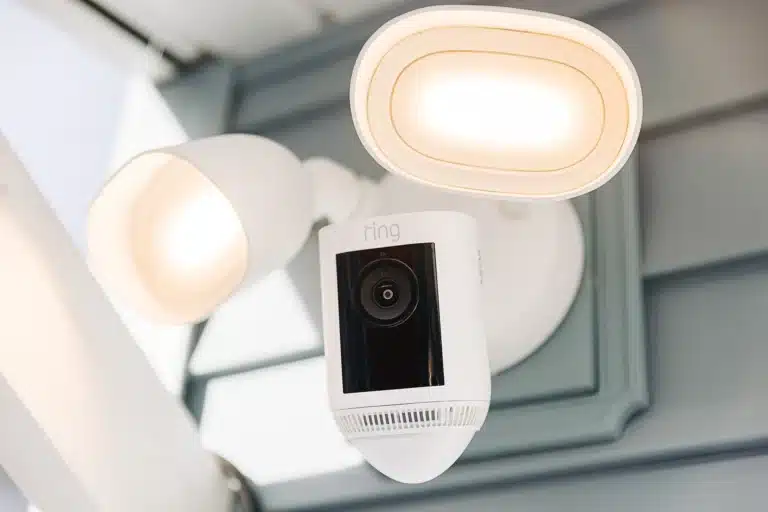Introduction
Do Apartments Permit Ring Security Cameras? The introduction of smart gadgets has completely altered people’s approaches to home security in the dynamic field of this field. Among these technological innovations, Ring cameras have emerged as a popular choice, offering residents the ability to monitor their apartments remotely and enhance their sense of safety. However, the use of such devices in shared residential complexes raises important questions about privacy, consent, and the implications of constant surveillance in communal living environments.
The proliferation of Ring cameras and similar smart home security systems has sparked debates over their permissibility in apartment settings. While proponents argue that these devices serve as a valuable deterrent against burglaries and other potential threats, opponents express concerns about the infringement of privacy rights and the potential for misuse of the collected data. Balancing the desire for increased security with respect for personal privacy is a complex issue that requires careful examination.
This paper discusses the contentious issue of whether or not apartment complexes should be allowed to install Ring security cameras, weighing the potential downsides of constant surveillance against the potential upsides of increased safety. The study will also look into any laws that might already be in place that cover the installation of smart safety measures in rental homes. Residents, landlords, and lawmakers will all benefit from the results. They will help them make sensible, privacy-conscious rules that strike the right equilibrium between security needs and freedoms enjoyed by individuals in the digital age.

Can you use a Ring camera in an apartment?
The Ring app lets you connnect and control all your devices from one simple dashboard. Ring products are made for a straightforward installation, making them perfect for renters. DIY installation that takes only a few minutes to set up and doesn’t require any drilling.
The use of a Ring camera within an apartment is typically acceptable, but special care must be taken to protect the personal space and rights of all tenants. Ring cameras, like other smart home security devices, can offer valuable security benefits for apartment residents, allowing them to remotely monitor their living spaces and deter potential threats. However, it is essential to adhere to legal and ethical guidelines to avoid infringing on the privacy of others.
It is very important to read the lease agreement and talk to the property manager or landlord before putting in a Ring camera in an apartment. Certain condominiums may have rules or standards about how surveillance cameras can be used. It is very important to get clear permission from each of the roommates or housemates, because watching people all the time without their permission can cause trust problems and legal disputes.
Do you need permission from landlord for Ring doorbell?
The landlord could allow tenants to install Ring and similar devices at their discretion, but this permission should not come without carefully prescribed guidelines. The chief concern is whether the devices will infringe on the privacy of other tenants.
Before putting in a Ring bell or any other home security device, you should usually and often need to get permission from your landlord. Reason for this is that installing a Ring doorbell requires making changes to a property, which might affect how the entrance or nearby areas look or work. As a result, property owners can often prevent or require approval for certain alterations done to their land.
Before proceeding with the installation, it is crucial to carefully review your lease agreement or rental contract. In some rental agreements, tenants must obtain written permission before making any changes to the property, include installing security equipment like a Ring doorbell. Violating the terms of the lease without permission may lead to legal consequences, including potential fines or eviction.
If your lease is silent on the matter or you believe your landlord may be open to the idea, it is essential to initiate a conversation about your intention to install a Ring doorbell. Clearly communicate the benefits of having the device, such as enhanced security and the ability to deter potential threats. Address any concerns your landlord may have regarding potential damage to the property or the appearance of the doorbell.
Can I put a Ring camera on a rental?
You may have been reluctant to buy a Ring Video Doorbell for your rental because you weren’t sure if it was transferable to your tenant. Good news! It is completely transferable but it does require cooperation from the previous tenant.
Yes, you can put a Ring camera on a rental property, but it is important to follow certain guidelines and seek permission from your landlord to ensure a smooth and respectful installation process.
Before you do anything else, read your lease deal to see if there are any specific rules about changes or security devices. There may be parts of some leases that say installing cameras or making other changes to the land is illegal or limited. If you break these rules, you could get in trouble with the law, so it’s important to get permission from your owner.
To put a Ring camera on a rental property responsibly, consider the following steps:
Seek Permission: Initiate a conversation with your landlord or property management about your intention to install a Ring camera. Clearly explain the reasons for wanting the camera, such as improving security and peace of mind.
Discuss Placement: Collaborate with your landlord to determine suitable locations for the camera that align with the property’s aesthetics and security needs. Focus on public areas like doorways and entrances to respect the privacy of other tenants.
Temporary Installation: Opt for non-intrusive and temporary installation methods, if possible, that won’t cause damage to the property.
Privacy Considerations: Address any privacy concerns your landlord may have and assure them that the camera will not be used to invade the privacy of other tenants or capture sensitive areas.
Restore Property: If you move out of the rental or no longer wish to use the Ring camera, ensure you remove it responsibly and restore any modifications made to the property.
Can you put a Ring camera anywhere?
The Ring Indoor Cam is easily one of the most versatile security cameras when it comes to placement inside your home. While it can’t be used outdoors, it can be placed inside literally anywhere there is access to a power outlet.
Understanding the guidelines will help ensure responsible usage and respect for privacy laws.
Private Property vs. Public Spaces: Ring cameras are generally meant to be installed on private property, such as your home or apartment. It is essential to avoid installing cameras in areas that violate someone else’s privacy, such as pointing them directly into your neighbor’s windows or common areas in an apartment building.
Compliance with Local Laws: Different regions may have specific laws and regulations regarding surveillance cameras, particularly when it comes to recording audio or video in public spaces. Research and comply with local laws to avoid legal issues.
Obstruction-Free View: Place the Ring camera in a location that provides an unobstructed view of the area you want to monitor. Avoid placing it behind obstacles like plants or ornaments that might hinder its effectiveness.
Secure Mounting: Ensure that the camera is securely mounted to prevent accidental falls or tampering.
Respecting Privacy: Be mindful of the camera’s field of view and ensure it doesn’t capture areas where people have a reasonable expectation of privacy, such as bathrooms or bedrooms.
Landlord Permission: If you are renting, seek permission from your landlord before installing a Ring camera. Review your lease agreement to understand any restrictions on modifications or security devices.
Power and Connectivity: Consider the proximity to power outlets and Wi-Fi signals to ensure reliable functionality.
Can a tenant install a Ring camera?
The landlord could allow tenants to install Ring and similar devices at their discretion, but this permission should not come without carefully prescribed guidelines. The chief concern is whether the devices will infringe on the privacy of other tenants.
In most cases, a tenant can install a Ring camera in their rental property, but it is essential to follow specific guidelines and seek permission from the landlord.
To ensure a smooth and lawful installation process:
Review Lease Agreement: Before Before you start the installation, read the lease or rental deal very carefully. Some leases may have parts that say you can’t or can’t make changes to the property or put in protection devices. Following the lease’s rules is very important to stay out of trouble with the law.
Seek Landlord Permission: Initiate a conversation with your landlord or property management about your intention to install a Ring camera. Clearly explain the reasons for wanting the camera, such as enhancing security and peace of mind. Obtaining written consent is advisable to have a documented agreement.
Temporary Installation Methods: Opt for non-intrusive and temporary installation methods that won’t cause damage to the property. Many Ring security cameras are made to be installed and removed quickly and easily, without leaving any visible traces.
Respect Privacy Boundaries: Install the camera in areas that respect the privacy of other tenants and avoid capturing private spaces such as bedrooms and bathrooms. Focus on public areas like doorways and entrances.
Privacy and Data Collection: Be mindful of privacy laws and ensure that you use the camera’s features responsibly. Avoid recording conversations without permission and be open about the information gathered by the camera.
Inform Other Tenants: If your rental property is shared with other tenants, inform them about the presence of the camera and address any concerns they may have. Open communication can help foster a sense of trust and understanding.
Restore Property upon Moving Out: If you decide to remove the Ring camera or move out of the rental, ensure that you do so responsibly and restore any modifications made to the property.
Can you use Ring alarm in an apartment?
It is possible to use Ring a Alarm in a residence, and it can be a useful and easy way to make your living area safer. Ring Alarm is a do-it-yourself home security system that comes with a base station, door and window monitors, and motion detectors. All of these parts work together to give full defense against possible attacks and emergencies.
Using Ring Alarm in an apartment offers several advantages:
Easy Installation: Ring Alarm is designed for easy It can be installed by the renter, so it’s good for people who don’t want to make permanent changes to the property. Many Ring Alarm parts are wireless, so setting them up is easy because you don’t have to drill holes or run wires.
Portability: If you move to a new apartment, you can disassemble the Ring Alarm system and take it with you. This flexibility allows you to maintain home security across different living spaces.
Affordability: Compared to traditional professionally monitored security systems, Ring Alarm is often more cost-effective, making it an appealing option for budget-conscious renters.
Remote Monitoring: With the Ring mobile app, you can monitor your apartment’s security status from anywhere, receive real-time alerts, and even arm or disarm the system remotely.
Customization: Ring Alarm can be tailored to fit the layout and needs of your apartment. You can add or remove sensors and detectors based on your specific security requirements.
Can I put a camera in front of my apartment door?
You need their approval, and there could be specific rules and regulations in your state or area code you would have to follow. If you’re looking to install an apartment security system, below we discuss invasive and non-invasive security cameras, as well as other security options you could consider with your landlord.
In most cases, you can put a camera in front of your apartment door, but it is important.
To consider certain factors to ensure you do so responsibly and legally.
Check Lease Agreement: Review your lease agreement or rental contract to see if there are any specific provisions regarding security cameras or modifications to the property. Some leases may have clauses that regulate the installation of cameras, so it’s essential to adhere to the terms of the lease.
Positioning and Field of View: Place the camera in a way that captures only public areas, such as your doorstep or hallway, without intruding on your neighbors’ privacy. Avoid pointing the camera towards your neighbors’ doors or windows.
Considerations for Shared Spaces: If you live in a multi-unit building with shared spaces, consult with your neighbors and property management about the camera’s placement to address any privacy concerns they might have.
Visible vs. Discreet: Decide whether you want the camera to be visible as a deterrent or discreet to blend in with the surroundings. Visible cameras may act as a deterrent to potential intruders, while discreet ones can avoid drawing unnecessary attention.
Recording and Data Storage: Be mindful of privacy laws and regulations regarding recording audio or video. Ensure that you comply with local laws and respect the privacy of others.
Notify Visitors: If you install a visible camera, consider placing a notice or sign to inform visitors and guests about the presence of surveillance.
Why don t apartments allow ring doorbells?
Ring is not suitable for apartment buildings. Apartment entrances require a multi-tenant doorbell, with ability to remote unlock doors. Ring does not have that functionality. However, Ring may be suitable for individual unit doors, if the building does not have an entry system.
While not all apartments disallow Ring doorbells, some property management companies or landlords may have reasons for restricting or discouraging their use within the building.
Several factors contribute to this decision:
Privacy Concerns: Apartments often have shared spaces like hallways, entryways, and common areas where residents pass by frequently. Installing a Ring doorbell in such areas could potentially intrude on the privacy of other tenants and visitors, leading to concerns about surveillance.
Damage to Property: Some landlords may be concerned about the installation process, as it might involve drilling holes or making permanent modifications to the entryway or walls. Such modifications could lead to damage, which landlords may want to avoid for maintenance reasons.
Liability Issues: Landlords may worry about potential liability related to the use of security cameras. If the cameras capture incidents or accidents within the apartment complex, the responsibility for managing and sharing that footage could become complex and legally challenging.
Consistency in Security Measures: Property management companies may prefer to maintain consistent security measures across all units within the building to ensure a cohesive security strategy that complies with local regulations.
Monitoring and Management Concerns: Some landlords may not want to deal with the technicalities of monitoring or managing various security systems installed by different tenants. They might prefer centralized security systems that they can control and maintain.
Local Regulations: Depending on the location of the apartment building, there might be specific laws or regulations regarding the use of surveillance cameras, which could influence the decision to disallow Ring doorbells.

Conclusion
Clear and well-defined guidelines are essential to ensure that the deployment of such devices is conducted responsibly and with full consent from all parties involved. The study has highlighted the concerns of tenants who may feel uncomfortable or violated by the constant surveillance that Ring doorbell cameras can introduce in shared living spaces. Addressing these anxieties requires open communication and collaboration between landlords and residents to develop mutually agreeable security measures that respect individual privacy.
Moreover, policymakers play a crucial role in shaping the landscape of smart home security regulations. Striking the right balance involves crafting laws that safeguard the interests of both residents and property owners while acknowledging the rapidly evolving technological landscape. By striking this balance, we can leverage the benefits of Ring cameras’ security features while upholding the privacy and dignity of individuals residing in shared residential complexes. Ultimately, it is through a collaborative and empathetic approach that we can navigate the complexities of technology, security, and privacy to create harmonious living environments for all.

